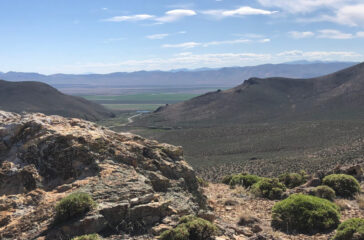In push to mine for minerals, clean energy advocates ask what going green really means
By Shannon Kelleher
A traveler crossing the expanse of northern Nevada desert known as Thacker Pass might see a wasteland – nothing but scrubby sagebrush out to the rim of the caldera, where the mountains cut the horizon.
 EWG
EWG